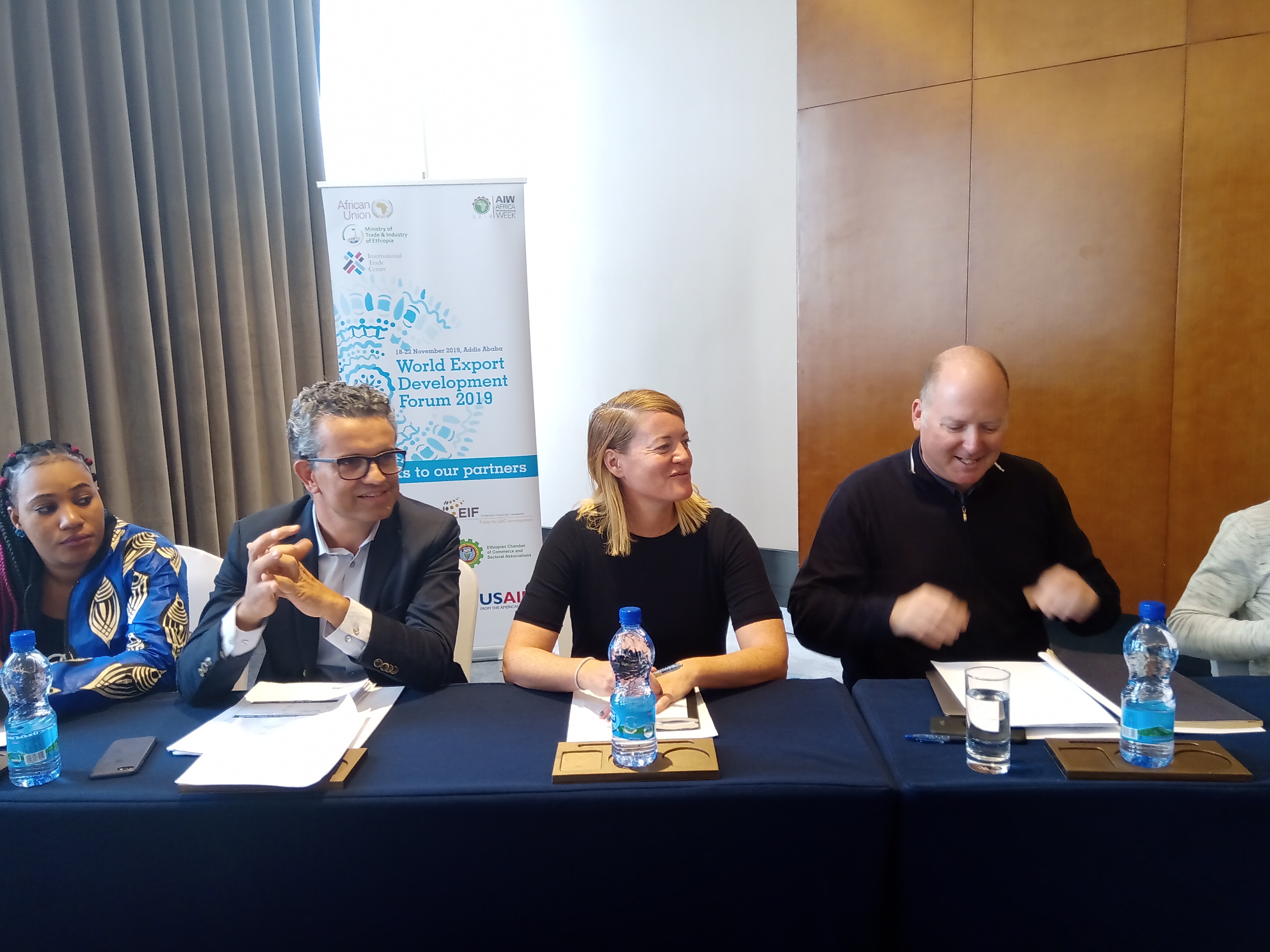By Byron Mutingwende in Addis Ababa, Ethiopia
Renowned industrialist Mr. Rongai Chizema, the Chief Technical Advisor of the African Union in the Department of Trade and Industry has called on African countries to leverage their rich and diverse natural resource endowments in order to drive social and economic transformation on the continent.
He made the remarks during a media-training workshop on global trade that is being held at the Skylight Hotel in Ethiopia ahead of the World Economic Development Forum.
Sharing a paper on Africa’s industrialisation initiatives, Chizema challenged the 50-year fixation to the post-colonial production structures, which have remained largely extractive at the expense of value addition.
He bemoaned the continuous exploitation of natural resources and their exportation in raw form at the expense of local beneficiation blaming this for the persistent poverty, which continues to stalk the continent in post-colonial Africa.
“The current Africa Continental Free Trade Area which swung into operational mode on 1 July 2019 following the African Union’s Head of State and Government Summit in May is a game-changer for the continent which will unleash productive capacity to supply the US$3, 4 trillion continental Pan-African market.
“In this scheme of things, industrialisation and continuous value addition of our natural resources becomes an important lever if the continent has to deliver on Agenda 2063 and the Africa that want,” Mr. Chizema said.
The AfCFTA is a testimony of the political will demonstrated by African leaders and this should guide the private sector in delivering value to the continent through accelerated investment in manufactures.
In sync with these sentiments, Thomas Huyghebaert, the Head of Cooperation of the Delegation of the European Union to the African Union, speaking during the same workshop, said the meeting comes at an opportune time when Africa is taking big steps towards integration.
“The African Continental Free Trade Area (AfCFTA) now has 54 out of 55 countries in the African Union member states that have signed to it. Of these, 29 countries have ratified. AfCTA will come into implementation next summer.
“In order to ensure a prosperous and stable continent, AfCFTA will result in exchange and free movement of goods and people on the continent. It is exciting that Africa is making major steps in the same direction,” Mr. Huyghbebaert said.
He called for a shift from inter-African trade that is mainly based on natural resources.
“AfCTA aims at transforming Africa’s relationship with Europe. Africa, has for long been the most important trading partner with Europe where it provides 36% of Europe’s international trade needs.”
The deepening of the trading relationship between Europe and Africa will result in sustainable investment and the creation of more jobs on the continent.
The European diplomat emphasised the need to increase the role of the private sector in trade. Africa enjoys a huge youthful population, which can lead to reaping of the demographic dividend.
The AU and EU trade partnership stretches over the last 30 to 40 years and is still growing. This can be further strengthened through sharing experiences and negotiation on trading of goods as well as overcoming barriers at customs.
The International Trade Centre, the African Union, the European Union and the Enhanced Integrated Framework have partnered in organizing this training programme on global trade for African journalists.
The training programme will coincide with several events organized in the context of the Africa Industrialization Week, including SheTrades Global, the Youth Forum and the World Export Development Forum. Participating journalists will have the opportunity to engage with speakers and will participate in press conferences and briefings.






